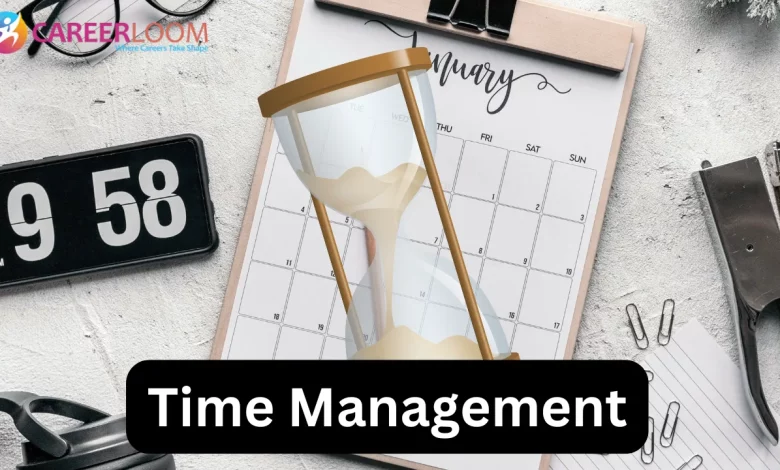Effective Time Management: Maximizing Productivity and Achieving Goals

Ever caught yourself staring at a pile of tasks, knowing there’s not enough time to get them all done? It’s a feeling almost everyone can relate to. We all have the same 24 hours in a day, yet somehow some people seem to accomplish so much more than others. So, what’s their secret? It’s all about effective time management.
Time management isn’t just about squeezing more work into your day—it’s about making better choices and using your time wisely to get the most out of every moment. If you’ve ever wondered how to balance your day better or get more done without burning out, you’re in the right place. Let’s dive into how effective time management can transform your productivity and help you reach your goals faster and with less stress.
Why is Time Management Important for Productivity?
There’s a saying: “If you fail to plan, you plan to fail.” While this might sound a bit harsh, it rings true when it comes to productivity. Imagine trying to assemble a piece of furniture without the instruction manual. You’d probably spend hours messing around with the wrong parts, frustrated and lost. The same happens when you don’t have a clear plan for your time—everything feels like chaos.
Effective time management helps you organize your tasks, prioritize what’s most important, and eliminate distractions. This means more of your energy goes into the work that matters most, rather than getting sidetracked or overwhelmed by the noise. When you manage your time well, you get more done in less time, which boosts your productivity and helps you achieve your goals more efficiently.
Think about it—when you’re organized and focused, you can knock tasks out of the park instead of dragging them out. You’re not wasting time figuring out what to do next because your plan is already set. So, in short: time management is the key to unlocking your full productivity potential.
How Can I Improve My Time Management Skills?
Improving your time management skills is like learning to ride a bike—you start off a little wobbly, but with practice, it becomes second nature. The first step is identifying where your time is going right now. You might think you’re being productive, but how many times do you check your phone or get lost in YouTube videos while working? It’s easy to fall into time traps without even realizing it.
One of the most effective strategies to improve time management is time blocking. This involves breaking your day into chunks of time dedicated to specific tasks. For example, you might reserve 9 AM to 11 AM for deep work, 11 AM to 12 PM for meetings, and 1 PM to 2 PM for emails. By giving each task a specific time frame, you reduce the chances of procrastination and ensure that your focus stays sharp.
Another key tip is learning to say “no.” You might be tempted to say yes to every request that comes your way, but that’s a surefire way to overburden yourself. Focus on what aligns with your goals and let go of anything that doesn’t serve your productivity. It’s not always easy, but saying no is one of the best ways to protect your time.
What Are Some Practical Time Management Techniques?
You’ve probably heard of some of these techniques, but let’s break them down in simple terms. Here are a few practical strategies that anyone—whether you’re a student or a professional—can use to improve time management:
1. The Pomodoro Technique
This is a tried-and-true method where you work in short bursts of time (usually 25 minutes) followed by a 5-minute break. The idea is to stay focused for a set period, then give your brain a quick rest before jumping back into the task. The beauty of this technique is that it makes big projects feel less intimidating, and those short breaks keep your mind fresh.
2. The Eisenhower Matrix
This technique helps you decide which tasks to prioritize. The matrix divides tasks into four categories:
- Important and Urgent: Do these immediately.
- Important but Not Urgent: Schedule them.
- Not Important but Urgent: Delegate them if possible.
- Not Important and Not Urgent: Consider eliminating them.
By sorting your tasks in this way, you can focus your energy on the things that truly matter.
3. Time Blocking
We touched on this earlier, but let’s dive a little deeper. Time blocking means assigning a block of time for each task or activity during your day. For example, you might block off 8:00 AM to 9:30 AM for work on a report and 9:30 AM to 10:00 AM for a team meeting. Time blocking ensures that you stay on track and gives you a visual map of how your day will unfold.
4. The Two-Minute Rule
This rule is simple: if a task will take two minutes or less, do it right away. Don’t put it off, don’t add it to your to-do list—just get it done. Whether it’s responding to an email or making a quick phone call, this strategy prevents small tasks from piling up and overwhelming you.
How Do I Stay Focused While Managing My Time?
Staying focused can be the hardest part of time management. It’s so easy to get distracted, especially with the endless notifications popping up on your phone or computer. But here’s the thing: focus is the cornerstone of good time management. Without focus, all the time management techniques in the world won’t help.
Here are a few tips to stay on track:
- Eliminate Distractions: Put your phone on silent, close unnecessary tabs on your computer, and create a workspace that’s free of distractions.
- Set Clear Goals: Know exactly what you want to accomplish in each time block. If your goal is clear, it’s easier to stay focused on the task at hand.
- Use the “Two-Minute Rule”: If you’re working on something and find your mind drifting, stop and ask yourself: “Is this something I can do in less than two minutes?” If so, do it right then and move on.
Staying focused also means knowing when to take breaks. Sometimes, the best way to maintain focus is to step away for a few minutes, refresh your mind, and then dive back in with renewed energy.
Can Technology Help with Time Management?
Yes! Technology has a ton of tools to help you manage your time better. From apps that track how you spend your day to tools that block distractions, there’s a world of time management solutions at your fingertips.
One app that’s incredibly helpful is Trello. It allows you to create boards, lists, and cards to keep track of your tasks and deadlines. It’s perfect for organizing complex projects and ensuring nothing slips through the cracks. Another great tool is RescueTime, which tracks how much time you spend on different websites and apps, so you can identify time-wasting habits and correct them.
While technology can be a great ally in time management, it’s important to remember not to get too caught up in the tools themselves. At the end of the day, your commitment to the process matters more than the app you’re using.
What Are Common Time Management Mistakes to Avoid?
Even the best of us can slip up now and then. Time management isn’t about being perfect; it’s about making consistent progress. That said, here are a few common mistakes to avoid:
- Not Prioritizing: Without clear priorities, everything feels urgent, and you end up doing the least important tasks first.
- Over-Scheduling: It’s tempting to fill every hour of your day, but that only leads to burnout. Leave space for flexibility.
- Neglecting Breaks: Don’t skip breaks thinking you’ll be more productive. Short breaks boost focus and creativity.
- Underestimating Time: We often think tasks will take less time than they actually do. Be realistic about how long things will take.
Remember: time management isn’t about being perfect—it’s about being mindful.
Conclusion
Mastering effective time management isn’t something that happens overnight, but with the right techniques and strategies, anyone can improve. From learning how to prioritize your tasks to using simple techniques like time blocking or the Pomodoro method, small changes can lead to big improvements in how you manage your day. Remember, the goal is not to fill every minute with work, but to use your time in a way that helps you accomplish more, with less stress. So take a deep breath, plan your time, and watch your productivity soar!
Effective time management is a skill that’s well worth developing, no matter what stage of life you’re in. Whether you’re a student trying to juggle schoolwork and extracurriculars, or a professional aiming to reach new goals, managing your time wisely is the key to achieving success and feeling in control of your life.


